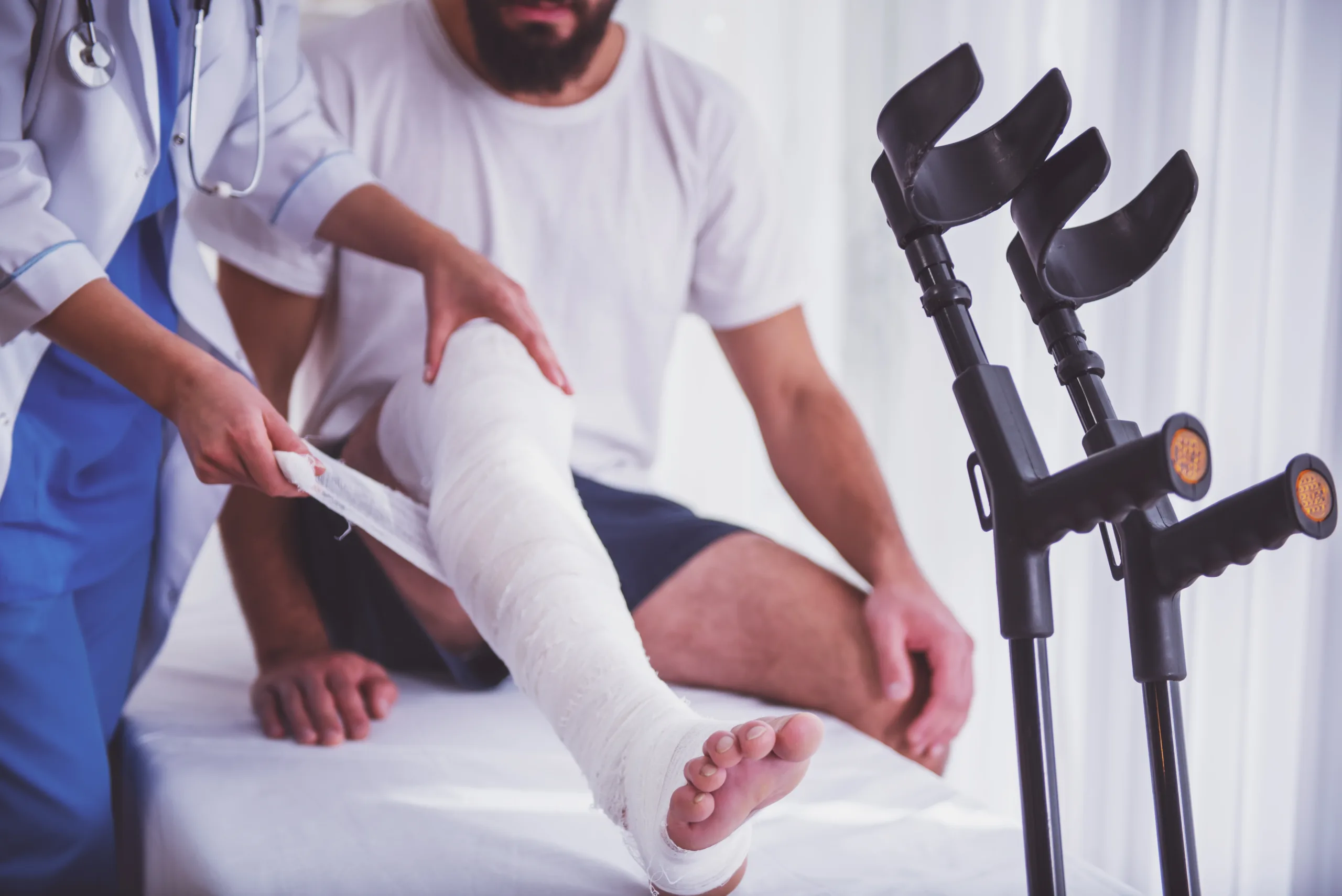The Other Driver Was Clearly at Fault – Do I Still Need Representation?
You’re sitting at a red light in Monroe when suddenly WHAM! The driver behind you was texting and slammed right into your bumper. Their fault is crystal clear, right? So why would you need an attorney when the other driver’s insurance should just cut you a check and call it a day?
If you think handling a “simple” not-at-fault accident claim is straightforward, you might be in for a rude awakening. Even when fault seems obvious, Louisiana’s unique laws and insurance company tactics can turn what should be straightforward into a complete mess.
Insurance Companies Don’t Play Fair
You might think fault determination is black and white, but insurance companies see dollar signs where you see clarity. Even in rear-end collisions or clear traffic violations, insurers employ teams of adjusters and attorneys whose only job is to pay you as little as possible.
Louisiana operates under a fault-based insurance system, meaning the at-fault driver’s insurance should pay for damages. But here’s the thing – proving fault involves more than your word against theirs. Police reports can contain errors, witnesses might disappear, and security footage gets deleted. Without proper legal representation, you’re fighting seasoned insurance professionals with limited resources.
Insurance adjusters often try to shift blame by claiming you were partially responsible. Maybe they’ll argue you could have avoided the accident, or that your brake lights weren’t working properly. Under Louisiana’s pure comparative fault system (Civil Code Article 2323), even being found just 10% at fault can slash your compensation by that same percentage. However, unlike some states, Louisiana allows you to recover damages even if you’re found to be significantly at fault – though your compensation will be reduced proportionally.
Time Is Not on Your Side
Louisiana’s prescription laws can bite you if you’re not careful. Recent legislative changes mean you now have two years from your accident date to file a lawsuit under Louisiana Civil Code Article 3493.1, which took effect July 1, 2024. While this increased from the previous one-year deadline, this two-year period only applies to accidents occurring on or after July 1, 2024. Accidents that occurred before this date are still subject to the one-year prescription period.
Here’s what most accident victims don’t realize: waiting to hire an attorney often means crucial evidence disappears. Security camera footage gets erased after 30-90 days, witnesses forget details or move away, and your own memory of the incident fades. By the time you think you need legal help, the strongest parts of your case might already be gone.
What Insurance Companies Really Do to You
Insurance companies make billions in profits by paying out as little as possible on claims. They have three main tactics they use against unrepresented accident victims:
Quick Settlement Pressure. They’ll try to get you to accept a fast settlement before you fully grasp your injuries. Back and neck injuries from car accidents often don’t show symptoms immediately. That “minor” fender-bender could result in months of physical therapy, but if you’ve already signed a release for $2,000, you’re stuck.
Using Your Words Against You. That innocent comment about feeling “fine” at the accident scene becomes their proof that you weren’t really injured. Insurance adjusters receive training on asking leading questions designed to get you to minimize your injuries or accidentally accept blame.
Challenging Your Medical Care. They might claim your injuries were pre-existing, that you’re getting unnecessary treatment, or that your doctor is recommending excessive care. Without legal representation, you’re left trying to argue medical necessity with insurance company doctors who have never even examined you.
Louisiana’s No Pay, No Play Law Can Hurt You
Louisiana has a “No Pay, No Play” provision under Louisiana Revised Statutes §22:1295 that significantly impacts uninsured drivers. Under this law, uninsured victims cannot collect the first $25,000 of property damage or the first $15,000 of bodily injury damages from the at-fault driver who does carry liability insurance.
This means if you don’t have insurance and you’re injured in an accident that wasn’t your fault, you could lose substantial compensation even though the other driver caused the crash. However, there are limited exceptions to this law, such as when the uninsured vehicle was legally parked. Recent legislative proposals have sought to make these restrictions even harsher for uninsured drivers.
When You Absolutely Need an Attorney
You should strongly consider hiring an attorney in these situations:
Any injuries at all. Even if you feel fine initially, soft tissue injuries can take days or weeks to show up. Medical bills pile up fast, and Louisiana’s medical payment systems can leave you completely confused about who pays what.
Insufficient insurance coverage. Louisiana requires minimum coverage of $15,000 per person for bodily injury, $30,000 per accident for bodily injury, and $25,000 for property damage under Louisiana Revised Statutes Title 32. If your damages exceed these amounts, you may need to pursue additional compensation through your own underinsured motorist coverage or directly from the at-fault driver.
Any dispute about fault. Insurance companies sometimes argue comparative fault even in seemingly clear-cut cases. If the other insurer suggests you bear any responsibility, you need legal representation immediately.
Missing work. Calculating lost wages involves more than just your daily pay rate. You may be entitled to compensation for lost earning capacity, benefits, and future income if your injuries affect your ability to work long-term.
Multiple vehicles involved. Multi-vehicle accidents create complex liability scenarios where multiple insurance companies may try to shift blame to minimize their own exposure.
Hidden Damages You Probably Haven’t Considered
Personal injury compensation goes way beyond medical bills and car repairs. Louisiana law allows recovery for both economic and non-economic damages, but insurance companies rarely volunteer to pay for everything you’re actually entitled to receive.
Economic damages include obvious costs like medical expenses, prescription medications, medical equipment, and lost wages. But they also include less obvious expenses like transportation to medical appointments, household help if you can’t perform normal activities, and modifications to your home or vehicle if you have lasting disabilities.
Non-economic damages compensate you for pain and suffering, mental anguish, loss of enjoyment of life, and permanent disability or disfigurement. In most personal injury cases in Louisiana, there are no statutory caps on damages, though specific circumstances may have limitations.
Insurance adjusters typically offer settlements that cover only the most basic economic losses. They’re not looking out for your long-term interests. They want to close your file for as little money as possible.
What Your Attorney Actually Does
Personal injury attorneys do much more than just talk to insurance companies. They conduct thorough investigations to preserve evidence and build the strongest possible case for maximum compensation.
This includes getting police reports and identifying any errors or missing information, interviewing witnesses while their memories are fresh, securing surveillance footage from nearby businesses or traffic cameras before it gets erased, consulting with accident reconstruction professionals when necessary, and working with medical professionals to document the full extent of your injuries and future care needs.
Attorneys also handle all communication with insurance companies, protecting you from making statements that could hurt your case. They know the tactics adjusters use and how to counter them effectively.
When it comes to calculating damages, attorneys work with economists, life care planners, and vocational rehabilitation professionals to make sure all current and future losses are properly valued.
The Real Cost of Going It Alone
Many accident victims worry about attorney fees, but the reality is that hiring a qualified attorney usually results in significantly more compensation than you could get on your own. Most personal injury attorneys work on contingency fees, meaning you don’t pay unless you win.
More importantly, consider what you risk by not having legal representation. Insurance companies know when you’re unrepresented, and they adjust their settlement offers accordingly. They might offer you $5,000 for an injury that would settle for $25,000 or more with attorney representation.
You also risk accepting a settlement that seems reasonable now but doesn’t account for future complications. Back injuries, for example, can worsen over time and may require surgery years later. Once you sign a release, you cannot go back and ask for more money, even if your condition gets worse.
Frequently Asked Questions
Will hiring an attorney make the insurance company mad and cause them to pay less?
Insurance companies are already trying to pay as little as possible. Having an attorney levels the playing field and often results in significantly higher settlements. Adjusters actually respect represented claimants more because they know an attorney will hold them accountable.
How much will an attorney cost me?
Most personal injury attorneys work on contingency fees, typically ranging from 33% to 40% of any settlement or verdict. You pay nothing upfront, and if you don’t win, you don’t pay attorney fees.
What if the other driver doesn’t have enough insurance?
Louisiana requires drivers to carry minimum liability coverage, but many people carry only these minimums. If your damages exceed the at-fault driver’s coverage, your attorney can help you pursue compensation through your own underinsured motorist coverage.
Can I still hire an attorney if I already talked to the insurance company?
Yes, but it’s better to hire an attorney before giving any recorded statements or accepting any settlement offers. If you’ve already been in contact with the insurance company, tell any attorney you consult exactly what was said and what documents you’ve signed.
Key Takeaways
- Insurance companies actively work against you. Even when an accident clearly wasn’t your fault, insurance companies will look for ways to minimize what they pay you.
- Louisiana’s laws protect victims, but you need to know how to use them. Understanding the state’s unique legal framework is essential for maximum compensation.
- The prescription clock is ticking. The two-year prescription period under Louisiana Civil Code Article 3493.1 gives you time to build a strong case, but remember this extended deadline only applies to accidents occurring on or after July 1, 2024.
- Evidence disappears quickly. Don’t wait to get legal help if you’ve been injured or if there’s any question about fault – crucial evidence can vanish within weeks.
- You’re fighting professionals. Insurance companies have teams of professionals working to protect their interests, you deserve the same level of representation.
- No financial risk in getting legal advice. Most personal injury attorneys offer free case reviews and work on contingency fees, so there’s no upfront cost for professional legal guidance.
- Early action protects your rights. The sooner you involve an attorney, the better they can preserve evidence and build your case.
Contact Us – Get the Representation You Deserve
Don’t let insurance companies take advantage of you after an accident that wasn’t your fault. At E. Orum Young Law Personal Injury Attorney, we fight to get Monroe area accident victims the full compensation they deserve.
We offer free case reviews to evaluate your case and explain your rights under Louisiana law. You pay nothing unless we recover money for you, so there’s no financial risk in getting professional legal advice.
Your case is too important to trust to chance. Contact E. Orum Young Law Personal Injury Attorney today and let us put our experience to work for you. Time is limited under Louisiana’s prescription laws, so don’t wait to protect your rights and your future.





